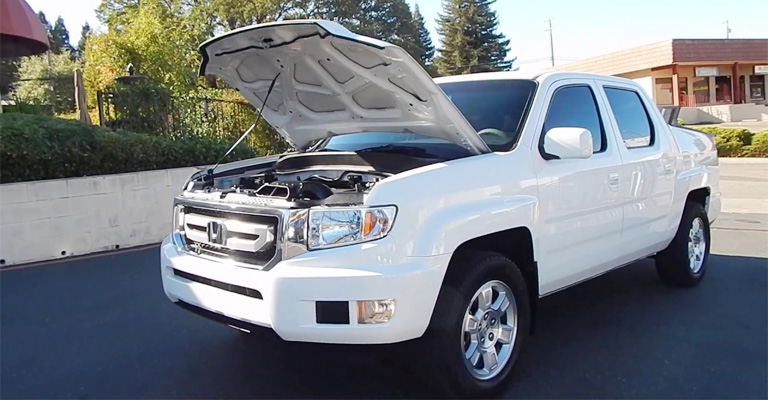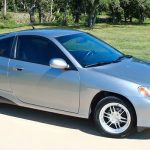The 2011 Honda Ridgeline is a pickup truck that was first introduced in 2005 and has undergone several updates and changes since then. As with any vehicle, it is possible for the 2011 Honda Ridgeline to experience problems.
Some common issues reported by owners include transmission problems, engine issues, and problems with the suspension. It is important for owners to be aware of potential problems and to address them promptly in order to ensure the safety and reliability of their vehicle.
In this article, we will discuss some of the common problems reported by owners of the 2011 Honda Ridgeline.

2011 Honda Ridgeline Problems
1. Check Engine and D4 Lights Flashing
The check engine light is a warning light that is displayed on the dashboard of a vehicle when the vehicle’s computer detects a problem with the engine or emission control system.
The D4 light is the transmission light, which indicates a problem with the transmission. If the check engine and D4 lights are flashing, it could indicate a serious problem with the engine or transmission, and it is important to have the vehicle checked by a mechanic as soon as possible.
2. Engine Idle Speed is Erratic or Engine Stalls
If the engine idle speed is erratic or the engine stalls, it could indicate a problem with the engine or the fuel system. This could be caused by a number of factors, including a faulty sensor, a malfunctioning fuel pump, or a clogged fuel filter.
It is important to have the vehicle checked by a mechanic to determine the cause of the problem and to have it repaired.
3. Check Engine Light for Running Rough and Difficulty Starting
If the check engine light is on and the vehicle is running rough or having difficulty starting, it could indicate a problem with the engine or emission control system. This could be caused by a faulty sensor, a malfunctioning fuel pump, or a clogged fuel filter.
It is important to have the vehicle checked by a mechanic to determine the cause of the problem and to have it repaired.
4. Check Engine Light and Engine Takes too Long to Start
If the check engine light is on and the engine takes too long to start, it could indicate a problem with the engine or the ignition system. This could be caused by a faulty sensor, a malfunctioning fuel pump, or a clogged fuel filter.
It is important to have the vehicle checked by a mechanic to determine the cause of the problem and to have it repaired.
Possible Solution
| Problem | Possible Solution |
| Check Engine and D4 Lights Flashing | Have the vehicle checked by a mechanic to determine the cause of the problem and have it repaired. |
| Engine Idle Speed is Erratic or Engine Stalls | Have the vehicle checked by a mechanic to determine the cause of the problem, such as a faulty sensor or a malfunctioning fuel pump, and have it repaired. |
| Check Engine Light for Running Rough and Difficulty Starting | Have the vehicle checked by a mechanic to determine the cause of the problem, such as a faulty sensor or a malfunctioning fuel pump, and have it repaired. |
| Check Engine Light and Engine Takes too Long to Start | Have the vehicle checked by a mechanic to determine the cause of the problem, such as a faulty sensor or a malfunctioning fuel pump, and have it repaired. |
| Suspension Issues (e.g. noise, vibration, or difficulty steering) | Have the suspension checked by a mechanic to determine the cause of the problem and have it repaired. |
| Transmission Problems (e.g. shifting issues or slipping) | Have the transmission checked by a mechanic to determine the cause of the problem and have it repaired. |
| Engine Issues (e.g. overheating or reduced power) | Have the engine checked by a mechanic to determine the cause of the problem and have it repaired. |
2011 Honda Ridgeline Recalls
| Recall | Date | Models Affected | Problem |
| 19V501000 | Jul 1, 2019 | 10 models | Newly Replaced Passenger Air Bag Inflator Ruptures During Deployment Spraying Metal Fragments. An inflator explosion may result in sharp metal fragments striking the driver or other occupants resulting in serious injury or death. |
| 19V500000 | Jul 1, 2019 | 10 models | Newly Replaced Driver’s Air Bag Inflator Ruptures During Deployment Spraying Metal Fragments. An inflator explosion may result in sharp metal fragments striking the driver or other occupants resulting in serious injury or death. |
| 19V182000 | Mar 7, 2019 | 14 models | Driver’s Frontal Air Bag Inflator Ruptures During Deployment Spraying Metal Fragments. An explosion of an inflator within the driver frontal air bag module may result in sharp metal fragments striking the driver, front seat passenger or other occupants resulting in serious injury or death. |
| 18V662000 | Sep 28, 2018 | 3 models | Passenger Air Bag Inflator Ruptures During Deployment Spraying Metal Fragments. An inflator explosion may result in sharp metal fragments striking the driver or other occupants resulting in serious injury or death. |
| 18V041000 | Jan 16, 2018 | 3 models | Passenger Air Bag Inflator Ruptures During Deployment Spraying Metal Fragments. An inflator explosion may result in sharp metal fragments striking the driver or other occupants resulting in serious injury or death. |
| 17V029000 | Jan 13, 2017 | 7 models | Passenger Air Bag Inflator Ruptures During Deployment Spraying Metal Fragments. An inflator rupture may result in metal fragments striking the vehicle occupants resulting in serious injury or death. |
| 16V344000 | May 24, 2016 | 8 models | Passenger Frontal Air Bag Inflator Ruptures On Deployment. An inflator rupture may result in metal fragments striking the vehicle occupants resulting in serious injury or death. |
| 16V061000 | Feb 3, 2016 | 10 models | Driver’s Frontal Air Bag Inflator Ruptures And Sprays Metal Fragments. In the event of a crash necessitating deployment of the driver’s frontal air bag, the inflator could rupture with metal fragments striking the driver or other occupants resulting in serious injury or death. |
| 22V430000 | Jun 17, 2022 |
Recall 19V501000:
This recall affects newly replaced passenger air bag inflators that may rupture during deployment, spraying metal fragments. This can result in serious injury or death to the driver or other occupants.
Recall 19V500000:
This recall affects newly replaced driver’s air bag inflators that may rupture during deployment, spraying metal fragments. This can result in serious injury or death to the driver or other occupants.
Recall 19V182000:
This recall affects driver’s frontal air bag inflators that may rupture during deployment, spraying metal fragments. This can result in serious injury or death to the driver, front seat passenger, or other occupants.
Recall 18V662000:
This recall affects passenger air bag inflators that may rupture during deployment, spraying metal fragments. This can result in serious injury or death to the driver or other occupants.
Recall 18V041000:
This recall affects passenger air bag inflators that may rupture during deployment, spraying metal fragments. This can result in serious injury or death to the driver or other occupants.
Recall 17V029000:
This recall affects passenger air bag inflators that may rupture during deployment, spraying metal fragments. This can result in serious injury or death to the vehicle occupants.
Recall 16V344000:
This recall affects passenger frontal air bag inflators that may rupture on deployment. This can result in serious injury or death to the vehicle occupants.
Recall 16V061000:
This recall affects driver’s frontal air bag inflators that may rupture and spray metal fragments. This can result in serious injury or death to the driver or other occupants.
Recall 22V430000:
This recall affects fuel tanks that may detach, causing a fuel leak and fire hazard.
Recall 12V025000:
This recall affects spare tires that may not be the correct size. This can lead to improper tire inflation, which could result in a tire failure and increase the risk of a crash.
Problems and Complaints Sources
https://repairpal.com/2011-honda-ridgeline/problems
https://www.carcomplaints.com/Honda/Ridgeline/2011/
All Honda Ridgeline years we talked –




